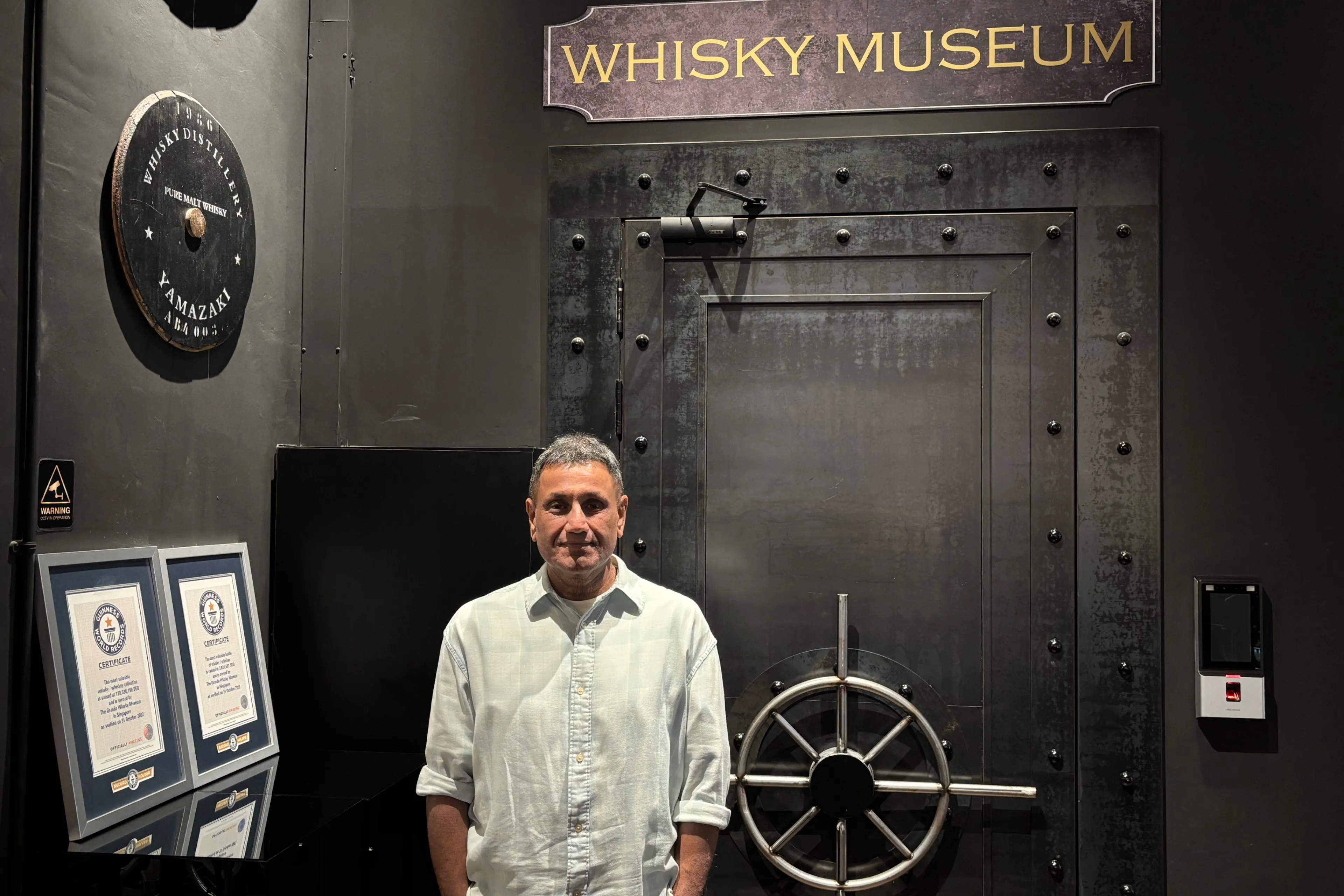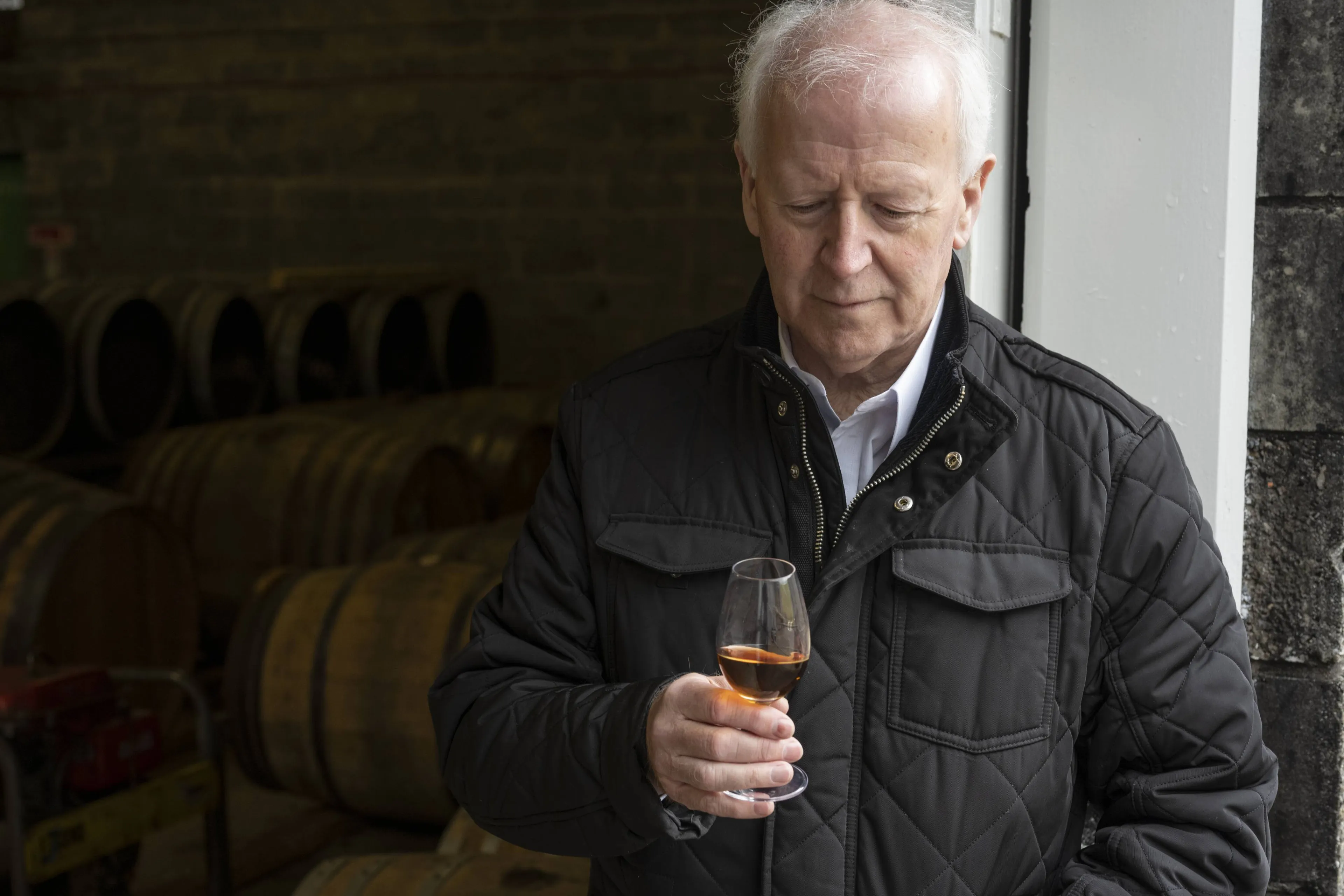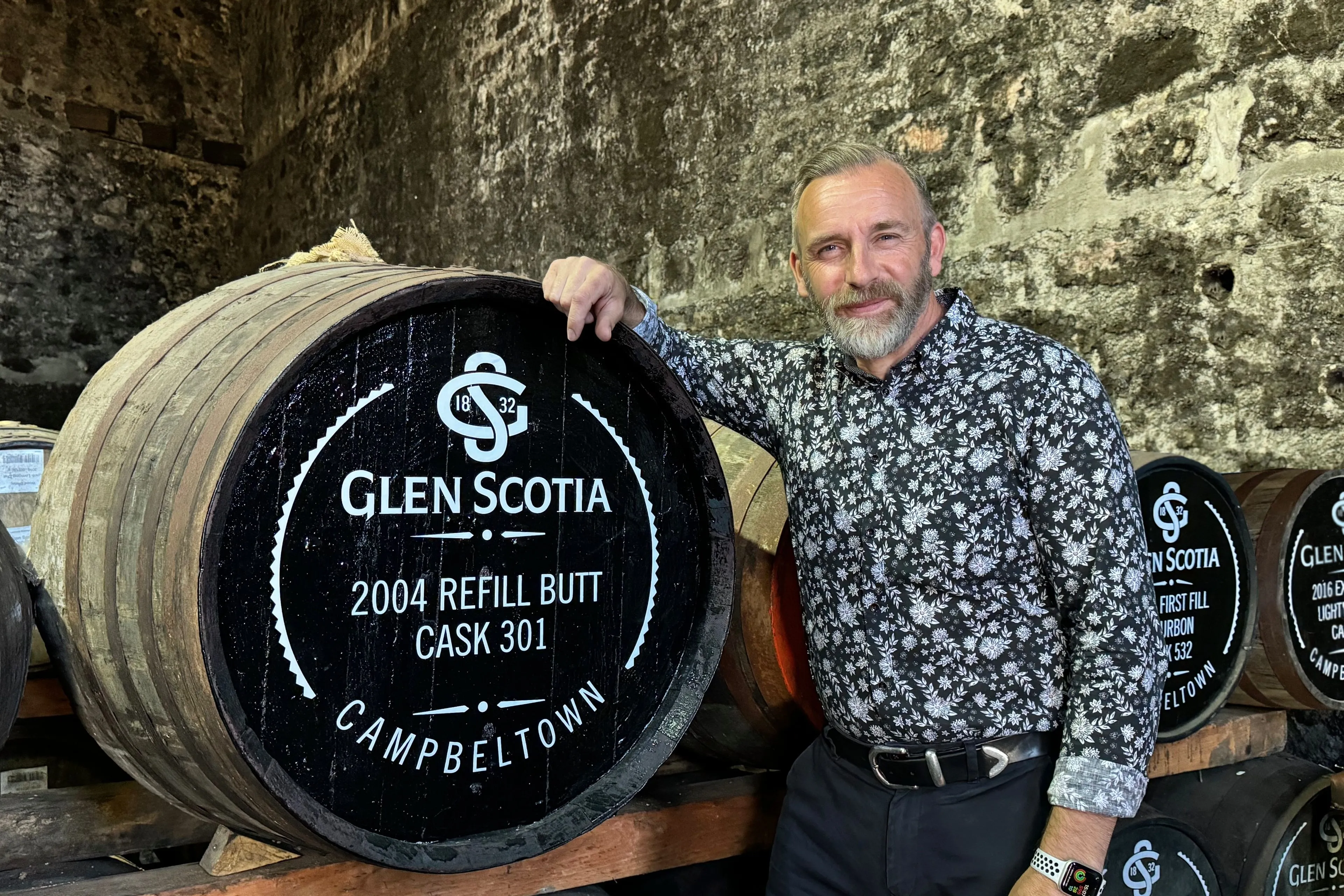Ally from Turntable Spirits on whisky making: ‘Billy Walker’s influence is in our DNA’
InterviewsSunday, 10 August 2025 at 08:00
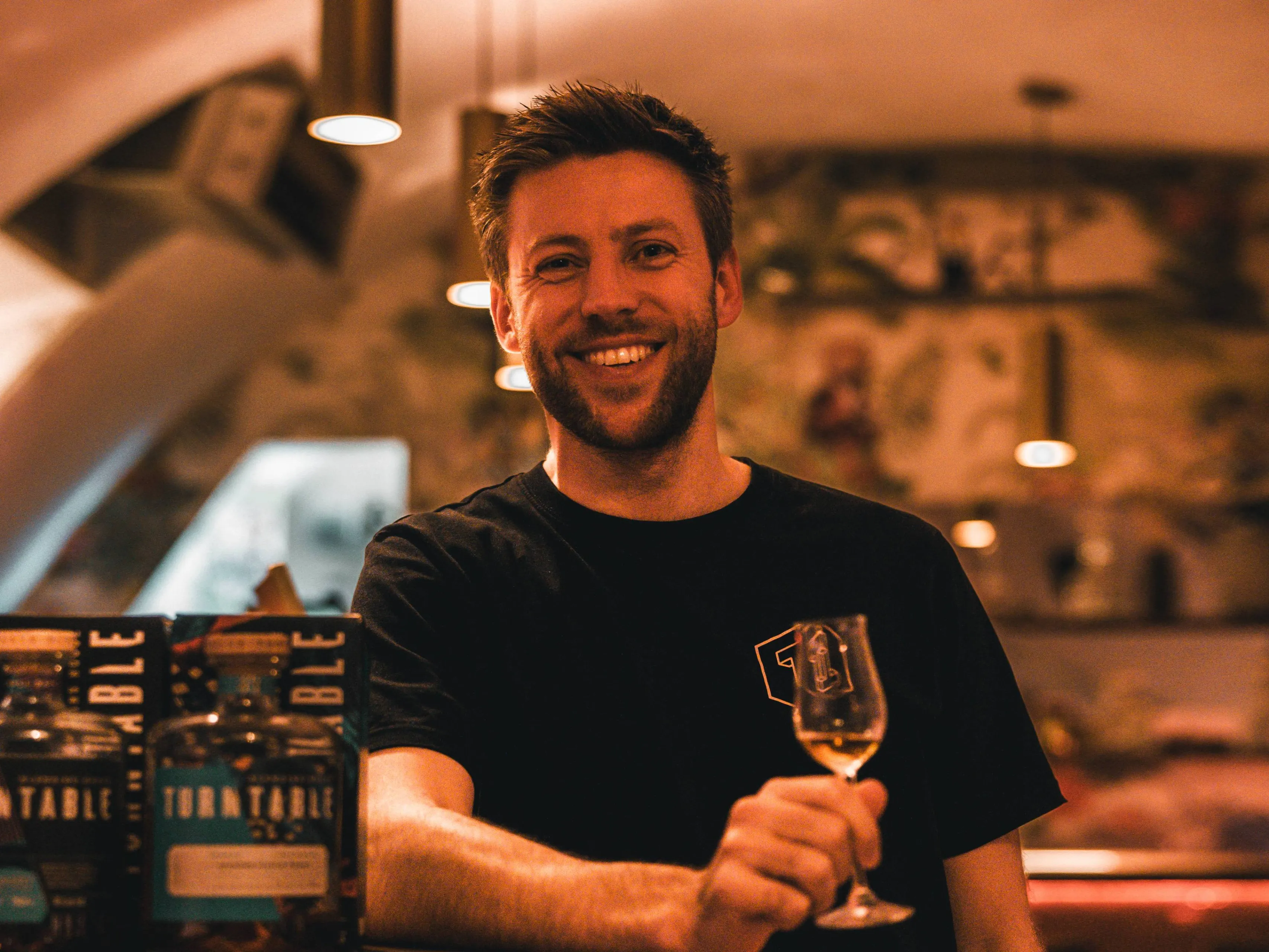
Alasdair Stevenson, along with his brother Gordon, runs the young but ambitious Turntable Blending House. We talked to him about whisky, music, collaboration and the comeback of blended whisky.
Is single malt whisky better than blended whisky? No. That's the answer you get from Ally (34), who has worked under Billy Walker for ten years and likes to shake up the whisky industry a bit.
Two brothers, one mission
Turntable was founded in 2023 by Alasdair and Gordon Stevenson. After over ten years of experience in the industry, they decided to change course. Not as a classic independent bottler, but with a clear mission: to show that blended whisky can be just as good, if not better, than single malt whisky.
‘We felt we could bring little new in the independent segment. There are already so many good single casks. So we went back to the beginning: taste, balance and creativity. All with transparency.’
This approach worked out well. Turntable is already active in fifteen markets worldwide, with striking releases, colourful labels and a loyal fanbase. But it remains a small-scale company.
‘It's still just Gordon and me, with some help from my sister Lindsey for marketing. We do most of it ourselves, and we're fine with that.'
Was it always a dream to work with his brother? Yes, secretly it was. Both of them were a little nervous about how their relationship would play out in the workplace, but so far it's been really good.
The influence of Billy Walker
Ally previously worked at BenRiach, Glendronach and GlenAllachie, where he learned from none other than Billy Walker.
‘Billy is a legend in the whisky world. What I learned from him about barrel management, wood types and maturation strategy we still use. His influence is in our DNA.'
But Turntable's approach is less traditional. The bottlings are not named after rivers or mountains, but after music tracks. Track 1 for example - Joy. Discovery. Invention. - is named after the first track from the debut album of Biffy Clyro, a Scottish rock band that Ally and Gordon were fans of in their teenage years.
‘We want whisky to touch people, just like music can. Smell and taste can evoke memories, and so can a certain song. We love combining these worlds, also to appeal to new people.’
Blends with a message
Turntable is completely transparent about what's in the bottle: at least 46% alcohol, non-chill filtered, natural colour and a clear statement of the blend composition. That's unusual, especially in a world where blended whisky is often seen as inferior.
‘There is still a persistent misunderstanding that blends are inferior. (...) But if you look at the history, blends were once the epitome of quality and consistency. Only the image has faded over the years.’
According to Ally, that was mainly because many blends went towards mass production.
‘Lower costs, younger whisky, more grain than malt... the strategy changed, not the philosophy behind blending. What we're doing is going back to the beginning.'
Read also
A blend should be more than the sum of its parts
This idea, that a blend adds something, is essential for Ally. He sees Turntable not as a bottler, but as a blender with a clear vision.
‘Our ambition is that every blend we make is more intriguing and tastier than each individual component. That's the bar we set for ourselves.'
This also comes out in the creative process.
‘Sometimes we work out a blend for months on end. Not to follow a standard profile, but to create something unique. If a certain track, colour or feeling fits with it, the bottling also gets a musical title. But the whisky always comes first.'
Convincing single malt lovers too
The fresh branding of Turntable – bright colours, sleek typography, and that nod to music – also attracts a new audience.
‘Our approach is to make whisky accessible, without sacrificing quality. We want to surprise single malt drinkers and bring in new drinkers.'
That's becoming more successful. ‘I think it's fantastic when someone says, ‘I normally only drink single malts, but this blend surprises me.’ That's what you do it for.’
Critical, but curious
However, Ally is not uncritical. He sees how some whiskies go to extremes.
‘I love peat and sherry, but if it's all about the highest ppm or the heaviest oloroso, then you lose balance. It shouldn't be a contest of who shouts the loudest.’
His least favorite style? ‘One-dimensional whiskies. If the character is completely dominated by one element, then it lacks depth. I want to taste layers. Flavor stories.’
Ally travels a lot for work about ten days a month. But he also makes time for relaxation. ‘On Friday evenings I like to cook with a glass on the side, or I put on music after dinner. And when I'm on the road, I often drink with partners or customers. Not for tasting, but for enjoying.’
Read also
What does the future hold?
What's next for Turntable?
‘We continue to focus on quality and growth, but always at our own pace. We want to have our own blending lab, with music, samples and possibly even workshops, but we're not there yet.’
In addition, two new releases are planned. Track 7 for example – a collaboration with several promising young distilleries from Scotland. ‘That will be a special, exciting bottling.’
Ally remains modest, yet determined.
‘We are far from finished. There is so much potential in blends. We want to make a lasting difference there.’
Favorite whisky: Old Pulteney 12 Years Old: nostalgic and in balance.
Number of glasses of whisky per week: About four, mainly at the weekend
Best bottle of whisky in possession: An open bottle of GlenDronach 1976 single cask.
Most expensive whisky ever drunk: Samples of very old Bowmore and The Macallan, never bottled.
Whisky you would have liked to invent: Chichibu or Kavalan.
Least favorite whisky: Excessive peated or sherry styles without balance.
Number of glasses of whisky per week: About four, mainly at the weekend
Best bottle of whisky in possession: An open bottle of GlenDronach 1976 single cask.
Most expensive whisky ever drunk: Samples of very old Bowmore and The Macallan, never bottled.
Whisky you would have liked to invent: Chichibu or Kavalan.
Least favorite whisky: Excessive peated or sherry styles without balance.
Read also
loading
POPULAR NEWS
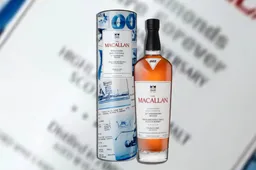
Update: The Macallan James Bond Diamonds Are Forever 55th Anniversary Whisky: This is What We Know
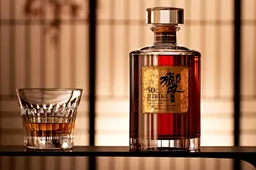
The World’s Best Whiskies of 2026: World Whiskies Awards Winners
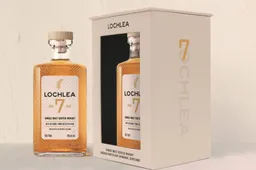
Lochlea Marks a New Milestone With its Oldest Single Estate Single Malt to Date
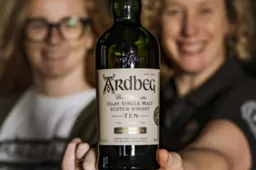
Bold, Peaty and Lush: You Don't Want To Skip The 2026 Ardbeg Committee Whisky
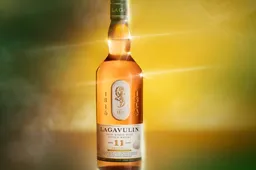
Lagavulin Unveils the 11-Year-Old Sweet Peat Whisky: Islay smoke with a mellow, sweet twist
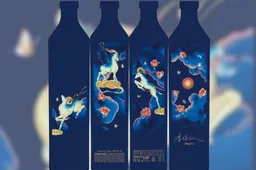
Johnnie Walker Unveils a New Limited Edition and It's Not the Year of the Horse Bottle
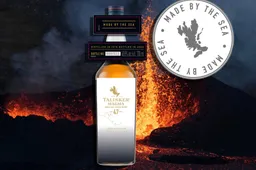
Talisker Magma Spotted: Ultra-Rare Single Malt Distilled in 1978 May Be Coming

Diageo’s sweeping plans: jobs at Clynelish Distillery on the line
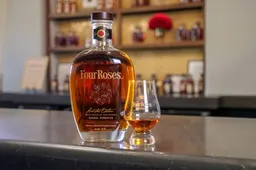
Big American Distillery Back in American Hands After More Than 20 Years
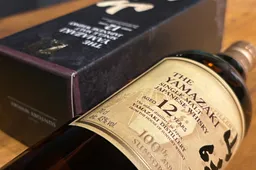
Whisky Names Explained: Where Does Suntory Come From?
LATEST COMMENTS
- There is no distillery equipment there and also no licences to produce or sell alcohol.TRC19-12-2025
- Hi Yvonne, Thank you for your response and for sharing the video. Unfortunately, the evidence you referred to consists only of two people talking about the whisky, without any explanation or identification. We have not spoken to the individuals in the video ourselves, nor can we verify who they are. We describe it as a Chinese whisky because it is released by a Chinese distillery. As you mentioned, the distillery has chosen to label the product as “pure malt” instead of “Chinese whisky.” Based on that, we do not believe they are doing anything illegal.M0nkey16-11-2025
- So - you have the proof......where's your write up?Yvonne16-11-2025
- You are absolutely right. Luckily that doesn't matter for the taste of the whisky. Have you tried it yet?M0nkey05-11-2025
- Guess what? Finland is not part of Scandinavia.Gray105-11-2025
- Throw in the towel? You mean restructure to compete and win in a challenging industry environment.WestwardFounder21-10-2025
- There is nothing legally to prevent the English whisky GI from coming into force, it complies with all the relevant laws and the single malt definition follows the precedent of Welsh whisky and US whiskyChefBear15-10-2025
- Three emails sent (two with videos, linked to a Google Drive Share). 1. The original video. 2. The video with subtitles as it was shared on YouTube 3. Screen grab of the YouTube channel where the video was blocked due to Pernod Ricard lobbying. The story was covered on Drinks Intel at the time - link here - https://drinks-intel.com/subscriber-news/pernod-ricards-the-chuan-pure-malt-whisky-not-sourced-solely-from-china-global-drinks-intel-exclusive/Yvonne10-10-2025
- Hi Yvonne, Thank you for your interesting comment. Could you share your copy with us, so we can adjust our item accordingly? Mail us at [email protected]. Thank you in advance.M0nkey09-10-2025
- Let's keep this factually correct. Pernod Ricard DID NOT release a Chinese whisky. Their first output from The Chuan (the name of the distillery in Sichuan, China) wasn't fit for bottling. What they actually bottled was imported Scotch whisky. This is why the product is called "PURE MALT" and not "Chinese Whisky" - because Pure Malt is not a regulated term - this is not a secret. This was exposed about a week after they released it. There were even videos about their own staff on site admitting it was made from imported whisky - which Pernod Ricard got the lawyers onto to get the video pulled. I've got a copy if you want it.Yvonne09-10-2025
Loading
